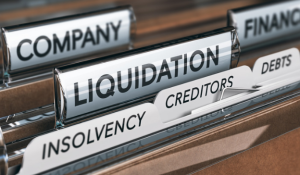As the Covid-19 pandemic continues to wreak havoc on the global economy, many businesses have been forced to take out loans in order to stay afloat. However, with so many companies struggling to make ends meet, an increasing number of loans are beginning to go into arrears. This has led to some directors becoming worried about the possibility of being held personally liable for the debts of their company.
However, it is important to remember that the law has not changed in this regard. The Ratings (Coronavirus) and Directors Disqualification (Dissolved Companies) Bill, which was introduced in 2021, simply gives the Insolvency Service new powers to investigate directors of dissolved companies. This does not mean that directors will automatically be held liable for bounce back loan arrears or other debts. So long as directors have acted reasonably and in good faith, they should not have anything to worry about.

In recent years, there have been a number of corporate scandals in which directors have been found to have breached their legal duties. As a result, new laws have been enacted that make directors personally liable for any debts incurred by the company. This includes bounce back loans, which were created to help businesses during the COVID-19 pandemic.
If a director is found to have misused a bounce back loan, they could be fined, disqualified from holding a corporate position for up to 15 years, and made personally liable for the debt. These new laws are designed to hold directors accountable for their actions and ensure that bounce back loans are used for their intended purpose: to benefit the company during the pandemic.
Imagine you’re a business owner who has recently taken out a government-backed loan to help weather the economic downturn caused by the pandemic. You may be worried that you could be in trouble if you spend the money you borrowed, as the loan was intended for. However, as long as you can demonstrate that the money was spent on reasonable and legitimate company business expenses, you shouldn’t have anything to worry about.
If your business is unviable and cannot pay its debts, the loan will be written off like any other type of unsecured borrowing. So, there’s no need to worry about taking out a bounce back loan – as long as you use the money wisely, it can be a lifesaver for your business.
The insolvency practitioner’s report will form a key part of any liquidation process and as such, directors must take care to provide a clear and reasonable account of their actions leading up to the company’s insolvency. The practitioner will be satisfied if the directors can provide evidence to support their explanation of how they used the bounce back loan to support the company.
If there are any areas of confusion, the directors will be given ample opportunity to explain their version of events and address any questions before the report is submitted. This process will help to ensure that the final report accurately reflects the directors’ actions and provides a clear picture of the events leading up to the company’s insolvency.
Businesses across the country are facing a range of challenges as they try to recover from the pandemic. One area of concern that directors might be focussing on at the moment is bounce back loan arrears.

If your business has problems with VAT debt repayments, overdue HMRC arrears, issues with the end of the furlough scheme or other hurdles that seem too high to overcome right now, get in touch with us today. We can help you navigate these challenges and find a way forward for your business. Don’t try to tackle everything on your own – expert help is available – BusinessRescueExpert help!
Author Profile

- Blogger and digital marketer.
Latest entries
 BusinessDecember 1, 2025Why Are Sustainable Restaurants Leading the UK Dining Scene?
BusinessDecember 1, 2025Why Are Sustainable Restaurants Leading the UK Dining Scene? LifestyleOctober 22, 2025How Does a Single Speeding Ticket Affect Your Insurance Premiums?
LifestyleOctober 22, 2025How Does a Single Speeding Ticket Affect Your Insurance Premiums? LifestyleOctober 22, 2025What Are the Risks of Carrying Valuables Across Borders?
LifestyleOctober 22, 2025What Are the Risks of Carrying Valuables Across Borders? BusinessMay 31, 2024Transforming Waste Management: Quick Wasters’ Commitment to the Environment
BusinessMay 31, 2024Transforming Waste Management: Quick Wasters’ Commitment to the Environment
